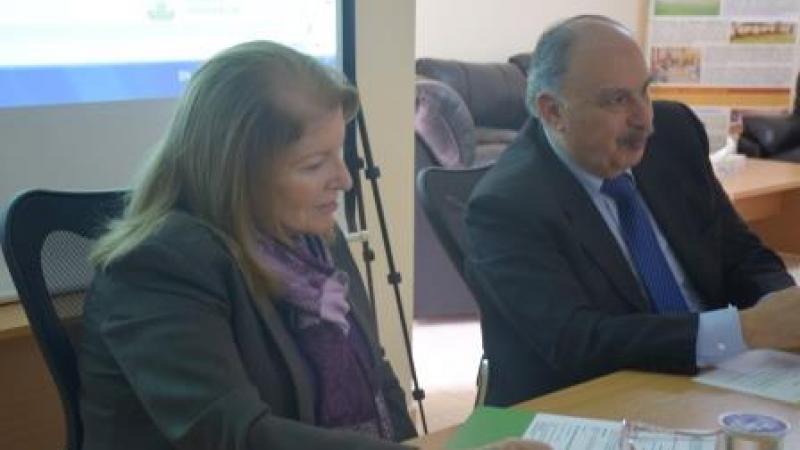Transforming Jordan's 'Badia' Region

Rural communities in the Jordanian ‘Badia’ endure land degradation, rising temperatures, and increasing water scarcity, and struggle to produce enough food for their rapidly growing populations. Over-grazing, unsustainable practices, and urbanization have all taken their toll on this fragile environment.
In an effort to reverse degradation and help Jordanian farmers produce more against a backdrop of climate change and increasingly harsh conditions, ICARDA has worked alongside national partners to test, validate, and deliver a range of practical and sustainable solutions.
The Hashemite Fund for the Development of Jordan’s Badia (HFDJB) is a key partner for transforming the ‘Badia,’ and were recently hosted at ICARDA’s office in Amman to review ongoing collaborative projects and define research priorities for 2015.
Represented by the Chairperson of HFDJB’s Board of Trustees, HH Sharifa Zein Alsharaf bint Nasser, the Fund discussed the possibility of putting together a joint proposal for research training – an effort to equip local producers with the tools and knowledge to overhaul production systems.
ICARDA’s Director General, Dr. Mahmoud Solh, commented on the Center’s long-standing partnership with Jordan, referring specifically to water management and productivity initiatives. Over the past three decades ICARDA has pursued a wide range of strategies to enhance Jordan’s use of scare water resources, including: the promotion of water harvesting techniques and technologies, the establishment of sustainable fodder plantations, and introducing crop-livestock systems as a means of strengthening community resilience.
The difficulties facing the region’s youth population were also discussed. Both organizations agreed that agricultural development could create opportunities for the young, and Dr. Solh remarked that the ICARDA-led CGIAR Research Program on Dryland Systems was currently drafting a youth strategy – providing a blueprint to guide regional efforts aimed at confronting this challenge.
